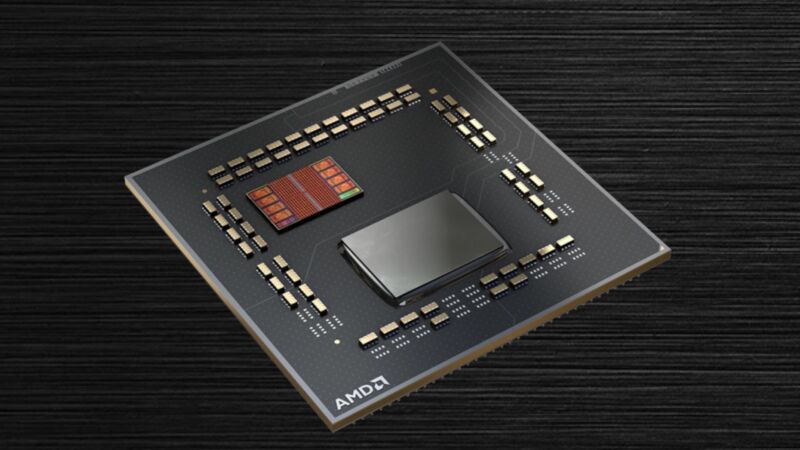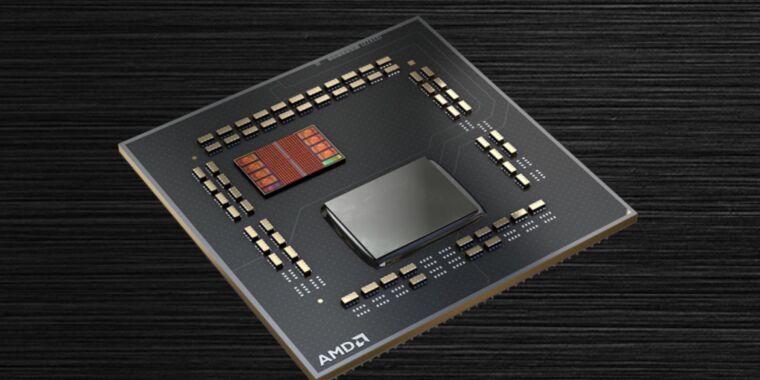
AMD’s Ryzen 7 5800X3D promises to be one of the company’s fastest gaming CPUs, and it’s one of the last high-end chips to grace the AM4 socket before Ryzen 7000 CPUs come out later this year. But the company’s experimental new 3D V-Cache stack technology has one negative side effect: It will be the first Ryzen CPU that can’t overclock.
According to PCWorld, AMD Director of Technical Marketing Robert Hallock says the change is because the processor’s voltage limit is set at 1.35 volts, slightly lower than other Ryzen 5000 chips. Lower voltage for the CPU cores means they generate less heat, presumably allowing some more thermal space for the 64MB of additional L3 cache memory the 5800X3D uses. A lower voltage would also explain why the clock speeds of the 5800X3D are a hair lower than the standard Ryzen 7 5800X.
Hallock said this will not be true for future 3D V-Cache CPUs. So if we see this technology being reused in Ryzen 7000 chips, those chips should still be overclockable like most other Ryzen processors have been. You can also try to squeeze some extra speed out of the 5800X3D with memory and Infinity Fabric overclocking.
Overclocking isn’t exactly a common use for processors these days, and the added benefits you can get out of most chips aren’t nearly as impressive as they were a decade or two ago. Still, AMD’s Zen CPUs are notable for supporting unlocked multipliers and overclocking on every single CPU model and motherboard chipset (until now, that is). Overclocking Intel CPUs still requires an expensive K-series processor and a high-end Z-series motherboard, although you can still get extra performance out of some Intel CPUs by increasing their power limits.
The 5800X3D launches on April 20 for $449 and AMD promises up to 15 percent higher gaming performance compared to a Ryzen 5900X. The chip is joined by AMD’s first significant new budget processors in two years, a line of Ryzen 4000 and Ryzen 5000 series CPUs priced between $99 and $299.

